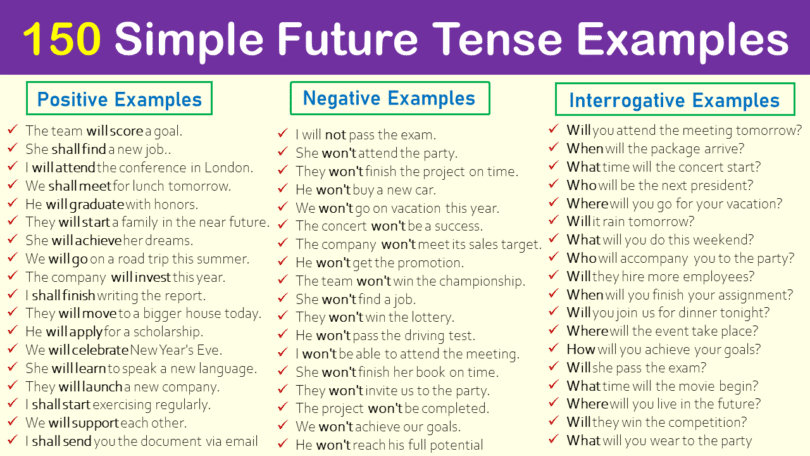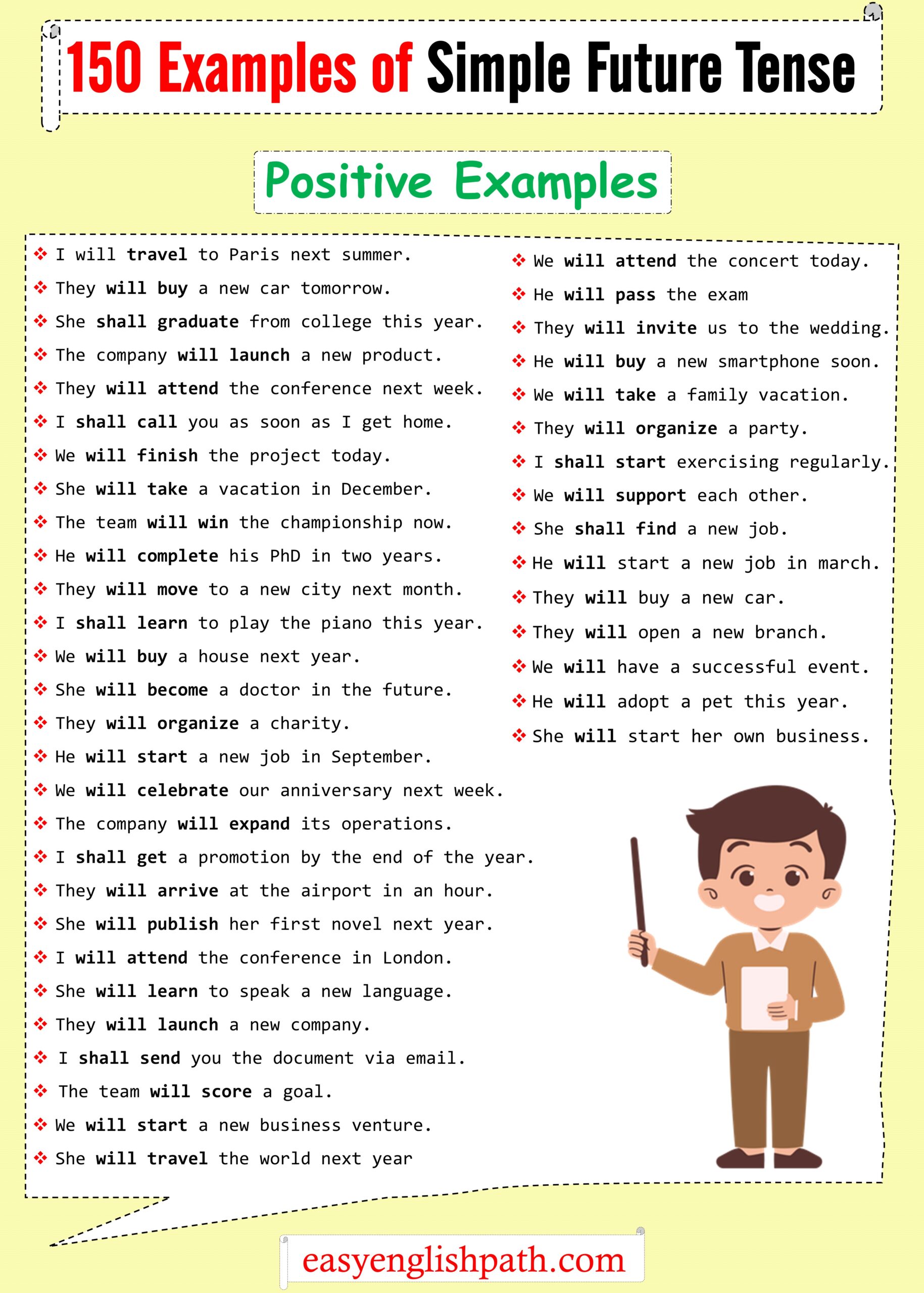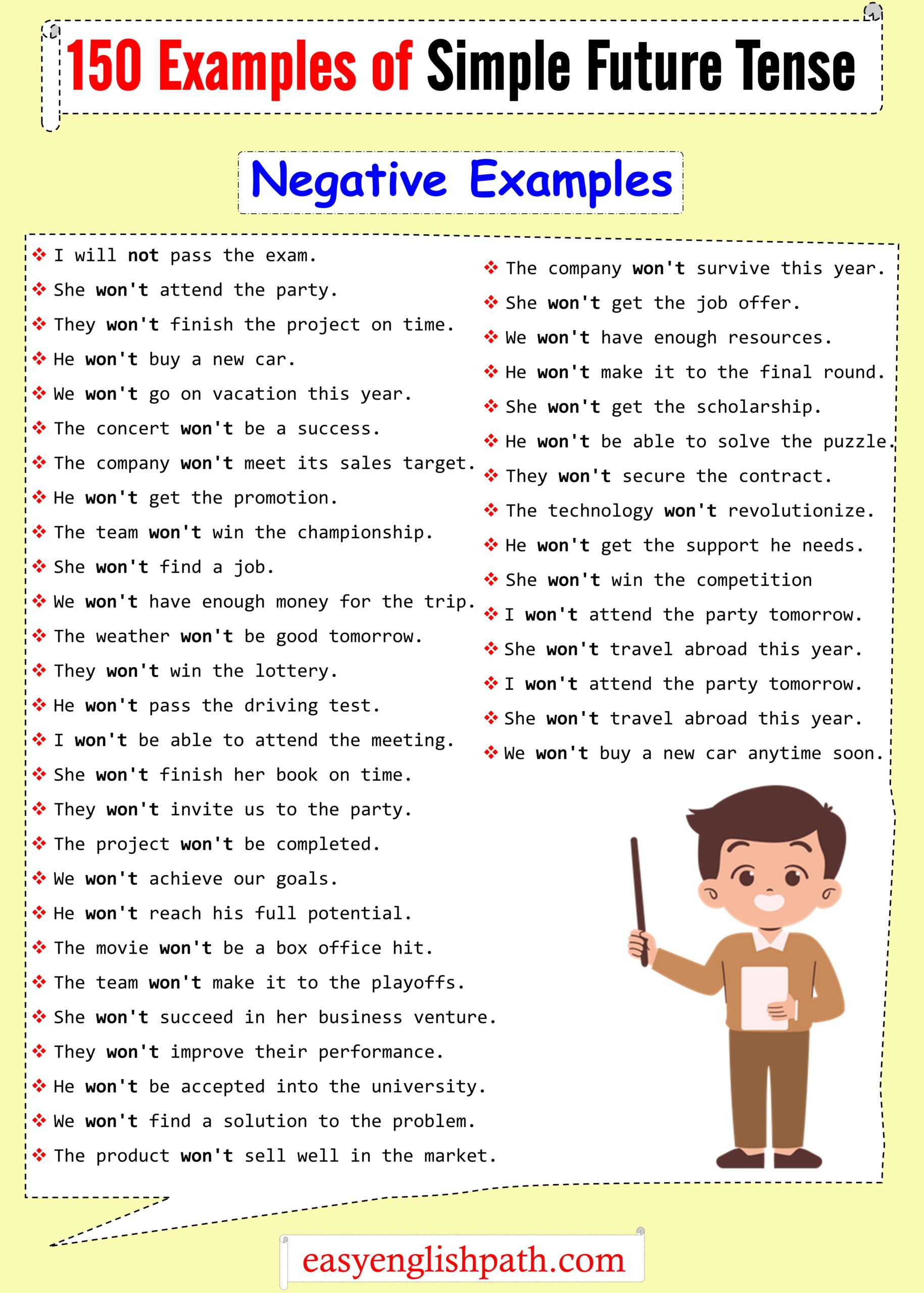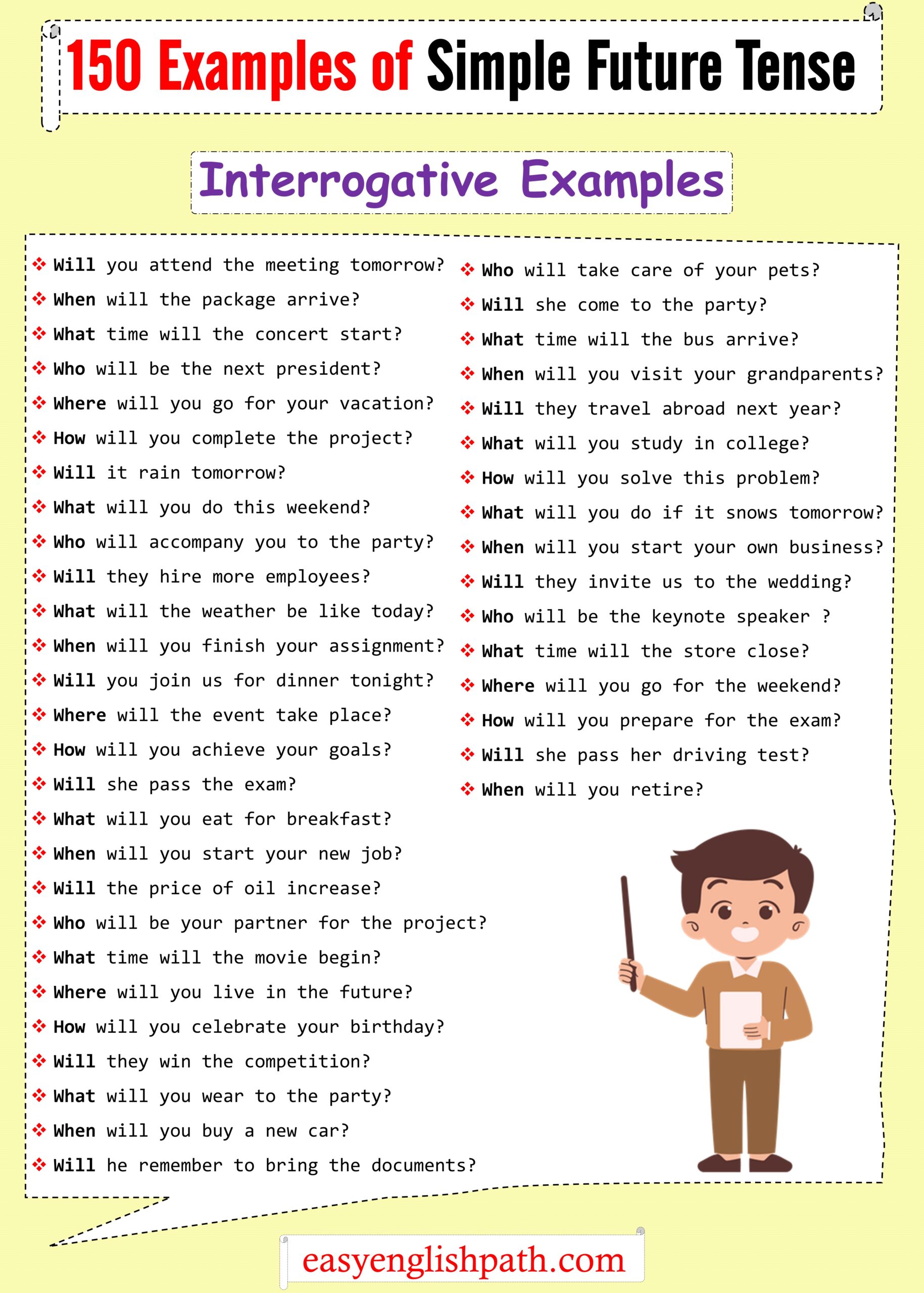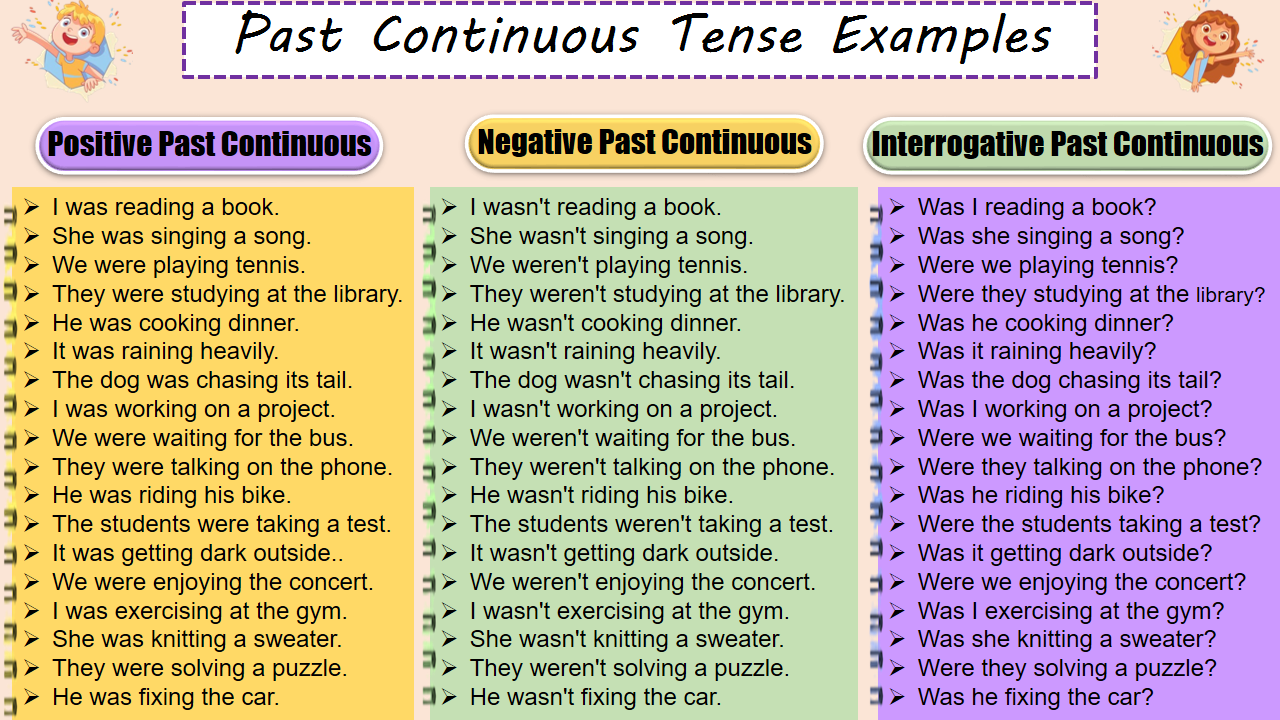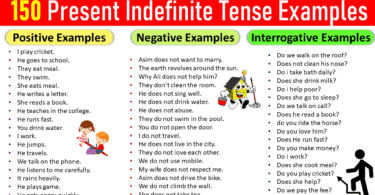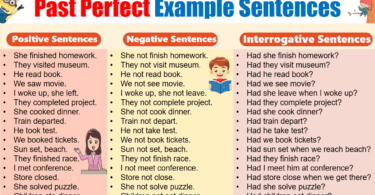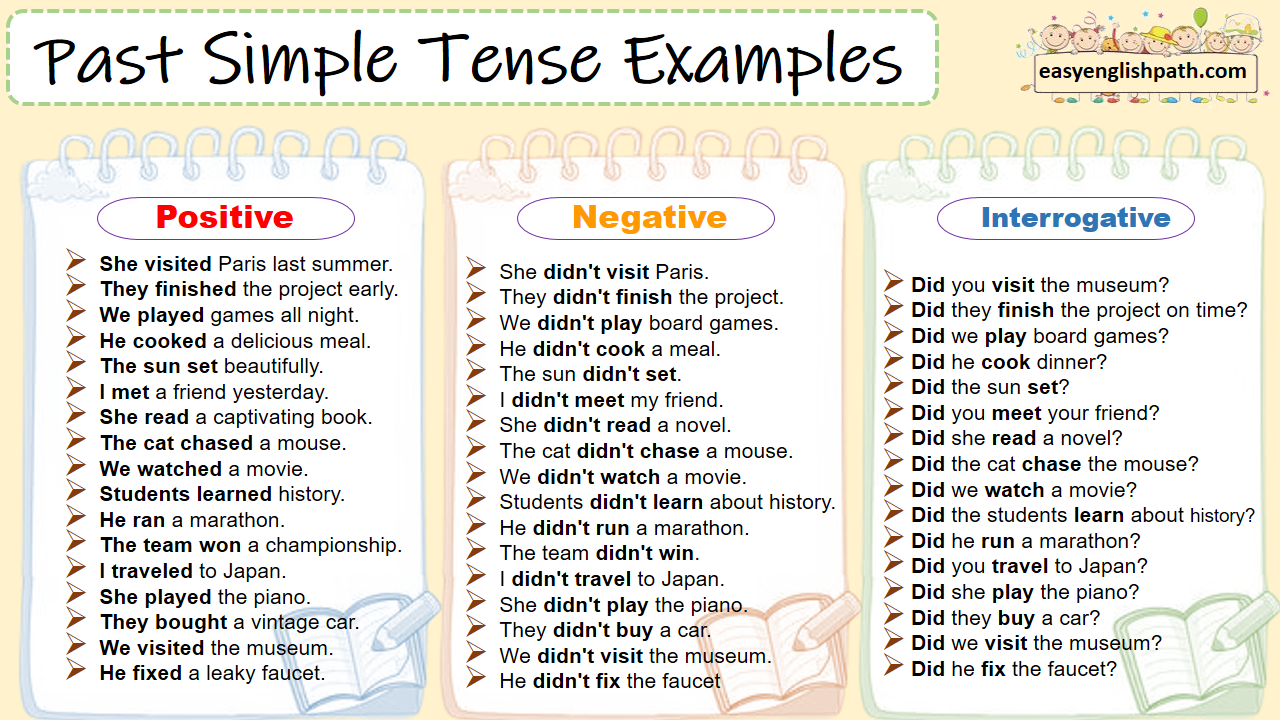Discover how to talk about the future with ease through Simple Future Tense Examples. In grammar, it’s like using a time guide. We’re talking about what will happen next, using simple words like “will.” Learn to make clear sentences about your plans without any confusion. No need for fancy words—just straightforward talk about what’s coming up. It’s like having a superpower in your language toolbox. Whether you’re planning something or stating a future fact, this way of talking is super simple. So, get ready to tell your future stories easily with the Simple Future Tense!
What is Simple Future Tense?
The simple future tense is used to describe an action or event that will happen at a later time, after the present moment. It indicates something that is yet to occur. In this tense, we typically use the helping verb “will” followed by the base form of the main verb. It can express predictions, intentions, plans, or expectations. For example, “She will complete her project tomorrow,” indicates an action that will take place in the future. It is a straightforward way to convey an upcoming event or action without any additional complexity or conditions.
150 Sentences of Future Simple Tense
Positive Examples
Affirmative structure:
Subject + will + base form of the verb
- I will travel to Paris next summer.
- They will buy a new car tomorrow.
- She shall graduate from college in two years.
- We will visit our grandparents over the weekend.
- The company will launch a new product next month.
- He will start his own business after graduation.
- They will attend the conference next week.
- I shall call you as soon as I get home.
- We will finish the project by the end of the month.
- She will take a vacation in December.
- The team will win the championship next year.
- He will complete his PhD in two years.
- They will move to a new city next month.
- I shall learn to play the piano this year.
- We will buy a house in the suburbs next year.
- She will become a doctor in the future.
- They will organize a charity event next month.
- He will start a new job in September.
- We will celebrate our anniversary next week.
- The company will expand its operations overseas.
- I shall get a promotion by the end of the year.
- They will arrive at the airport in an hour.
- She will publish her first novel next year.
- We will attend the concert next weekend.
- He will pass the exam with flying colors.
- They will graduate from high school in June.
- I shall send you the document via email.
- We will start a new business venture.
- She will travel the world after retirement.
- They will invite us to their wedding next month.
- He will buy a new smartphone soon.
- We will take a family vacation next summer.
- The team will score a goal in the next match.
- She shall find a new job before the end of the year.
- They will organize a surprise party for her birthday.
- I will attend the conference in London next month.
- We shall meet for lunch tomorrow.
- He will graduate with honors from university.
- They will start a family in the near future.
- She will achieve her dreams through hard work.
- We will go on a road trip this summer.
- The company will invest in new technology.
- I shall finish writing the report by the end of the day.
- They will move to a bigger house next year.
- He will apply for a scholarship to study abroad.
- We will celebrate New Year’s Eve with friends.
- She will learn to speak a new language.
- They will launch a new marketing campaign.
- I shall start exercising regularly from tomorrow.
- We will support each other in achieving our goals.
Negative Examples
Negative structure:
Will + subject + base form of the verb + (additional information)?
- I will not pass the exam.
- She won’t attend the party.
- They won’t finish the project on time.
- He won’t buy a new car.
- We won’t go on vacation this year.
- The concert won’t be a success.
- The company won’t meet its sales target.
- He won’t get the promotion.
- The team won’t win the championship.
- She won’t find a job.
- We won’t have enough money for the trip.
- The weather won’t be good tomorrow.
- They won’t win the lottery.
- He won’t pass the driving test.
- I won’t be able to attend the meeting.
- She won’t finish her book on time.
- They won’t invite us to the party.
- The project won’t be completed within the deadline.
- We won’t achieve our goals.
- He won’t reach his full potential.
- The movie won’t be a box office hit.
- The team won’t make it to the playoffs.
- She won’t succeed in her business venture.
- They won’t improve their performance.
- He won’t be accepted into the university.
- We won’t find a solution to the problem.
- The product won’t sell well in the market.
- The company won’t survive the economic downturn.
- He won’t be able to meet the deadline.
- She won’t get the job offer.
- They won’t achieve their financial targets.
- The experiment won’t yield any significant results.
- We won’t have enough resources to complete the project.
- The team won’t win the championship title.
- He won’t make it to the final round.
- The proposal won’t be approved by the board.
- She won’t get the scholarship.
- They won’t meet their production quota.
- The investment won’t generate high returns.
- We won’t reach a consensus on the issue.
- He won’t be able to solve the puzzle.
- The plan won’t be implemented successfully.
- She won’t achieve her weight loss goals.
- They won’t secure the contract.
- The technology won’t revolutionize the industry.
- We won’t receive funding for the project.
- The event won’t attract a large audience.
- He won’t get the support he needs.
- She won’t win the competition.
- They won’t be able to fix the problem.
Interrogative Examples
Interrogative Structure
Subject + will + not + base form of the verb (contracted as “won’t”)

